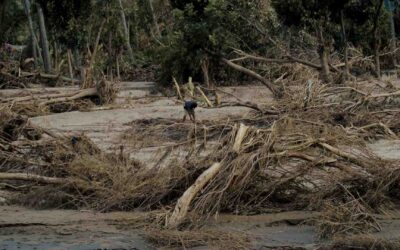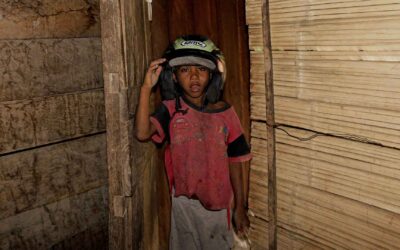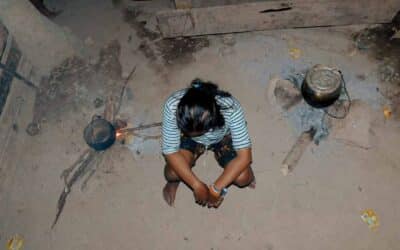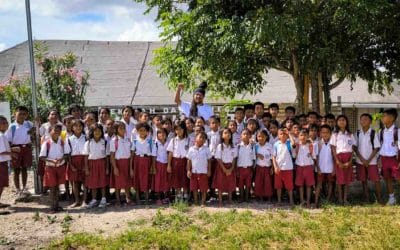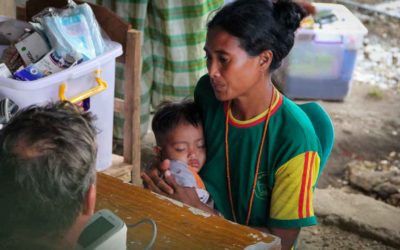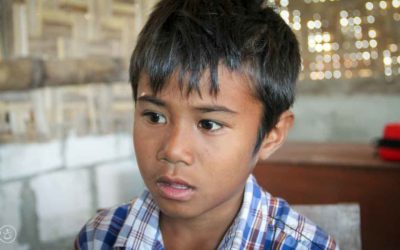In Eastern part of Indonesia, climate change is not abstract. It dries up crops, kills trees, spreads disease, and worsens poverty. The Environment and Climate Program acts locally to address global emergencies—through waste management, education, water access, and community-led adaptation.
After years of walking to find dirty water, villages like Laindatang, Hambarita or Mbinudita can now access clean water from community reservoirs they built themselves. Clean water reduces diarrhea, skin infections, and fear. This is a true reflection of dignity in daily life.
Donate
Support Care
Programs
All projects
Quick News
Field updates
Stories
Field stories
Our critical and priority emergency programs
Urgent interventions for long-term empowerment in rural Indonesia. Fair Future addresses the life-saving challenges of ultra-rural communities in eastern Indonesia, providing sustainable solutions for urgent surgical interventions and infectious diseases such as malaria, malnutrition, polio, and other infectious diseases.
The Vital Problems category of Fair Future Foundation addresses the urgent health issues and challenges facing families in ultra-rural Indonesia. These stories highlight our efforts to tackle malnutrition, water shortages, disease outbreaks, and other life-threatening issues. By sharing our work and community-based solutions, we show how even the most pressing problems can be met with compassion, practical action, and sustainable change for those who need it most.
The tangible impact of our work in life-saving emergencies
Mental Health Support in Rural Indonesia
In the remote corners of Indonesia, mental health struggles often go unnoticed. Fair Future builds bridges of empathy through local presence, active listening, and community-based care to help children feel heard.
Rising TB Cases: Causes and Solutions
Tuberculosis cases are increasing in ultra-rural communities in eastern Indonesia, due to inadequate living conditions, limited access to healthcare, and malnutrition. Learn more about the disease, how it is transmitted, and Fair Future’s efforts to provide education, early detection services, and treatment support to those affected.
If We Don’t Do It, Then Who Will? Global Water Crisis
The 10th World Water Forum has come to a close, but our mission persists. At the Fair Future Foundation, we are dedicated to tackling the global water crisis by supplying clean water to the most remote and underprivileged communities. Despite facing challenges and setbacks, our resolve remains steadfast. The driving question that motivates us is, “If We Don’t Do It, Then Who Will?” This question propels our efforts each and every day.
Malaria in East Sumba: All villages turned Red!
This new "Picture of the Day" shows you a brave but sad mom who asks for care for her little boy. She is a courageous but sad mother who seeks care for her little boy, who suffers from Malaria. With pain and more than 40 fever, He is the example of the "typical patient" here: Under five years old, this family lives in an ultra-rural and marginalized area. She is poor, and they don't have access to medical care or enough food and clean water; They don't have toilets either. Moreover, the whole village does not have access to electricity.
The medical staff of Kawan Baik and Fair Future Foundation bring him relief and medicine to lower his fever and get better as soon as possible. We also talk to the mother and give her good advice.
Let me re-explain to you what malaria is and why this disease is hazardous, and the categories of people it affects in the first place:
Malaria is caused by parasites transmitted by the bites of infected mosquitoes. Although anyone can get malaria, specific categories of people are more susceptible to severe illness and complications. We find that the impact of malaria varies by geographic region and local health infrastructure. Our efforts to fight malaria focus on prevention through measures such as the establishment of the Primary Medical Care Program (PMC), mosquito nets, spraying in villages (fogging), and learning to wash with an "ani-malaria or disinfectant" soap, among others.
1. First, children under five: This is because young children have a weaker immune system and have not yet developed immunity to disease. They are more likely to have serious symptoms and complications, including severe anaemia and cerebral malaria, which can be life-threatening. This is the case here: Infant mortality is very high in ultra-rural areas and marginalized populations of East Sumba.
2. But also pregnant women: Of course, malaria can have adverse effects on both the mother and the unborn child. Pregnant women are at an increased risk of developing severe malaria, leading to complications such as maternal anaemia, spontaneous abortion, stillbirth or low birth weight infants. I spoke to you about a similar case in Kabanda, right?
Public health interventions to provide vital advice to the most affected populations via the #kawansehat program are essential. You have to be close to people if you want to advise them on the best way to have a healthier life.
3. Ultra-rural and marginalized populations: Communities living in rural and remote areas, often with limited access to health care, such as here in East Sumba, are disproportionately affected by malaria. Factors such as poverty, lack of knowledge about preventive measures and limited access to health services contribute to malaria's higher prevalence and impact in these communities.
4. Immunocompromised people: People with weakened immune systems, such as those living with HIV/AIDS, are more likely to contract severe malaria. We are also talking about people with chronic illnesses. Malaria can also aggravate the progression of HIV infection. And concerning the rate of HIV-positive people here is also very high, even with very few tests being conducted.
A 9-year-old child needs surgery quickly
This little boy’s name is Assaria, he’s nine years old. He has severe 3rd-degree burns to over 24% of his body and requires surgical attention. He is not well, and we have to find a solution together. He can barely walk because of terrible burns to his legs and back. The consequences while growing up are significant circulatory and neurological problems. If nothing is done, he risks a double amputation. Let’s help him get surgery for severe burns on both legs before his health deteriorates.



